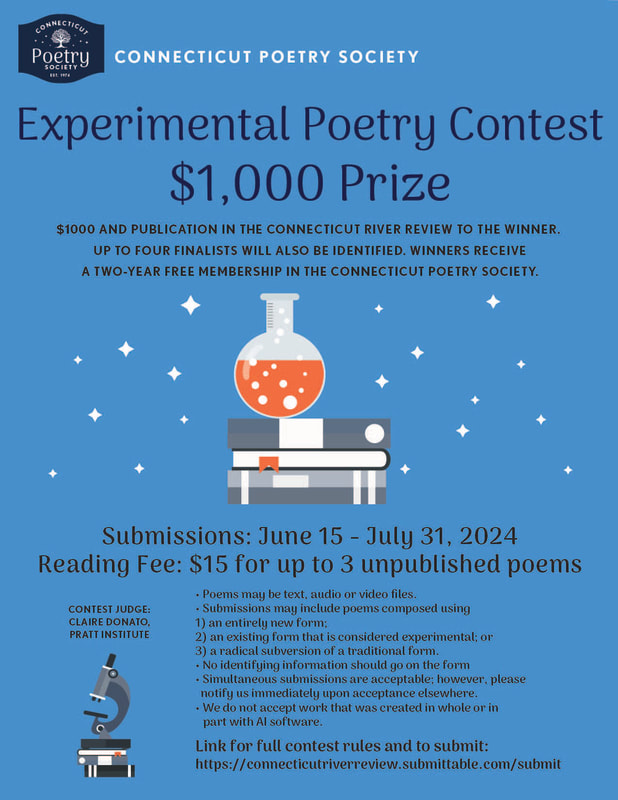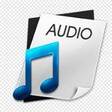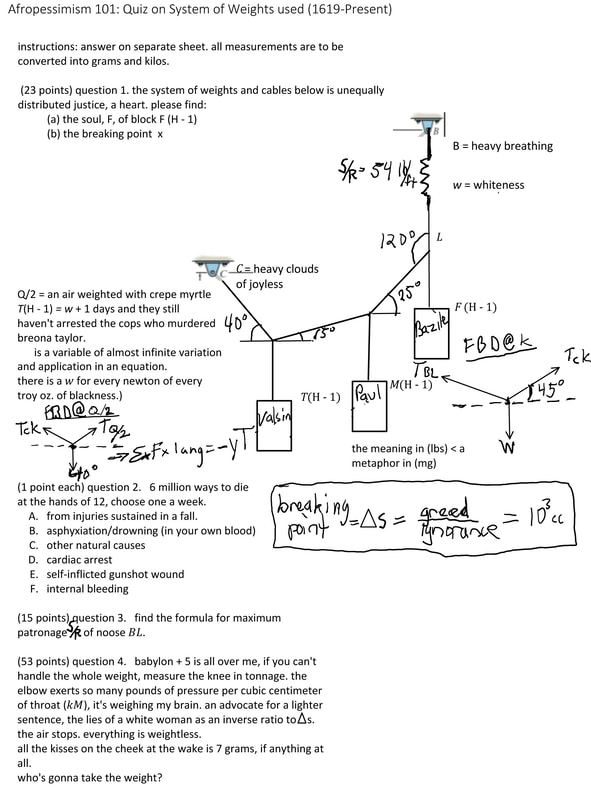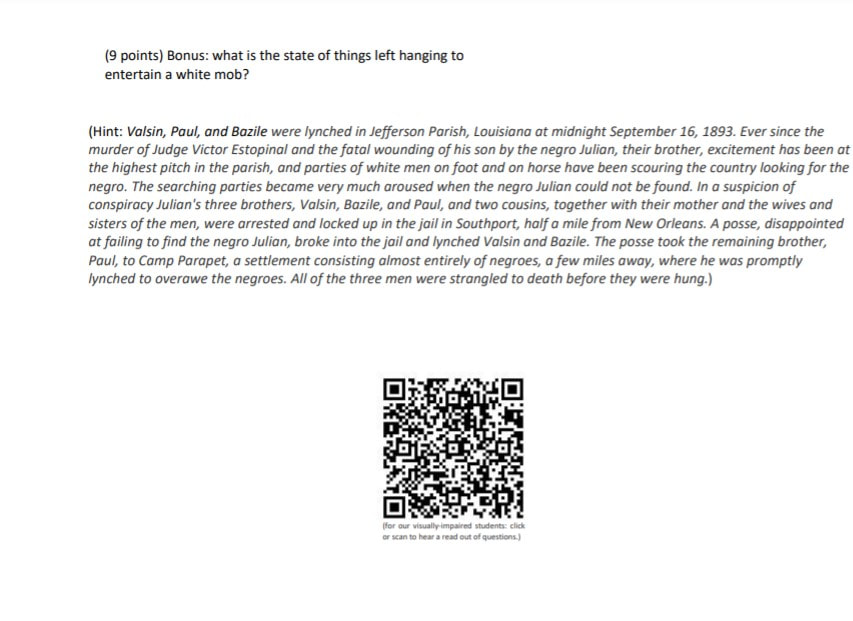Winner of the 2024 Connecticut Poetry Society's Experimental Poetry Contest
Darren Morris, “Eisegesis1-3”
Your browser does not support viewing this document. Click here to download the document.
Judge’s remarks:
“Eisegesis” is an ingeniously crafted long poem that functions at once as an autofiction, a catalog of thinking, a system of memories, an intertext, and a cousin to its literary predecessors—My Life by Lyn Hejinian and Tan Lin's oeuvre come to mind. I'm moved by the author's reflections on growing up in the Midwest; their diagnosis of legal blindness; the ongoing work of marriage, intimacy, and distance; not having children; the more-than-human environment; and the contemporary glut of digital technology. Carefully organized via multiple columns, footnotes, and numeric and alphabetical systems, the poem somehow magically surrenders control and allows its audience to freely read across—and against and alongside and through—multiple layers of consciousness. A truly accomplished work of literary art.
“Eisegesis” is an ingeniously crafted long poem that functions at once as an autofiction, a catalog of thinking, a system of memories, an intertext, and a cousin to its literary predecessors—My Life by Lyn Hejinian and Tan Lin's oeuvre come to mind. I'm moved by the author's reflections on growing up in the Midwest; their diagnosis of legal blindness; the ongoing work of marriage, intimacy, and distance; not having children; the more-than-human environment; and the contemporary glut of digital technology. Carefully organized via multiple columns, footnotes, and numeric and alphabetical systems, the poem somehow magically surrenders control and allows its audience to freely read across—and against and alongside and through—multiple layers of consciousness. A truly accomplished work of literary art.
Finalists:
katie wills evans, "meth addicted fish"
Jackson Watson, "In mythology a god is often the first surgeon"
Lucas Simone, "Summer on the Pier"
katie wills evans, "meth addicted fish"
Jackson Watson, "In mythology a god is often the first surgeon"
Lucas Simone, "Summer on the Pier"
We are seeking poems that explore the creative alchemy of words, form and visuals.
Our esteemed judge is Claire Donato from Pratt Institute. #ExperimentalPoetry #ContestAlert #ConnecticutRiverReview #PoetryCommunity #PoetryContest
- $1000 prize and publication in the Connecticut River Review await the winner! Up to four finalists will also be celebrated with a two-year free membership in the Connecticut Poetry Society.
- Submit your experimental poems from June 15 to July 31, 2024. Reading fee: $15 for up to 3 unpublished poems
- Seek inspiration from the chemical bonds of creativity. Poems can be text, audio, or video files, exploring entirely new forms, experimental existing forms, or radical subversions of tradition.
- No identifying info on submissions, please!
- But remember, creations from AI software won't make the cut.
Our esteemed judge is Claire Donato from Pratt Institute. #ExperimentalPoetry #ContestAlert #ConnecticutRiverReview #PoetryCommunity #PoetryContest
The Winner of the 2023 Experimental Poetry Contest:
JoAnne McFarland for her poem “American Graphic”
American Graphic
Click on the link to view the interactive poem.
Click on the link to view the interactive poem.
Judge’s comments for the winning poem, “American Graphic”:
In this haunting and poignant poem the technology is not intrusive; rather, it guides and reveals the lines in such a way as to make it feel an integrated whole. It works not only with appearance and disappearance, but also, powerfully, with time itself, which can be lost sometimes in conversations about lyric poems. A moving poem that adds new dimensions to our understanding of what poetry needs to do in the third decade of the 21st Century.
In this haunting and poignant poem the technology is not intrusive; rather, it guides and reveals the lines in such a way as to make it feel an integrated whole. It works not only with appearance and disappearance, but also, powerfully, with time itself, which can be lost sometimes in conversations about lyric poems. A moving poem that adds new dimensions to our understanding of what poetry needs to do in the third decade of the 21st Century.
Other Finalists: Claudia Creed, “to be winged”; Emily Van Kley, “For the Director of Music”; M.P. Carver, “In Vitro”
Contest Judge
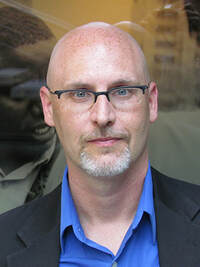
Senior Lecturer in English, Director of Creative Writing
Richard Deming is a poet, art critic, and theorist whose work explores the intersections of poetry, philosophy, and visual culture. His collection of poems, Let’s Not Call It Consequence (Shearsman, 2008), received the 2009 Norma Farber Award from the Poetry Society of America. His most recent book of poems, Day for Night, appeared in 2016. He is also the author of Listening on All Sides: Toward an Emersonian Ethics of Reading (Stanford UP, 2008), and Art of the Ordinary: the Everyday Domain of Art, Film, Literature, and Philosophy (Cornell UP, 2018). He contributes to such magazines as Artforum, Sight & Sound, and The Boston Review. His poems have appeared in such places as Iowa Review, Field, American Letters & Commentary, and The Nation. He teaches at Yale University where he is the Director of Creative Writing. Winner of the Berlin Prize, he was the Spring 2012 John P. Birkelund Fellow of the American Academy in Berlin.
Richard Deming is a poet, art critic, and theorist whose work explores the intersections of poetry, philosophy, and visual culture. His collection of poems, Let’s Not Call It Consequence (Shearsman, 2008), received the 2009 Norma Farber Award from the Poetry Society of America. His most recent book of poems, Day for Night, appeared in 2016. He is also the author of Listening on All Sides: Toward an Emersonian Ethics of Reading (Stanford UP, 2008), and Art of the Ordinary: the Everyday Domain of Art, Film, Literature, and Philosophy (Cornell UP, 2018). He contributes to such magazines as Artforum, Sight & Sound, and The Boston Review. His poems have appeared in such places as Iowa Review, Field, American Letters & Commentary, and The Nation. He teaches at Yale University where he is the Director of Creative Writing. Winner of the Berlin Prize, he was the Spring 2012 John P. Birkelund Fellow of the American Academy in Berlin.
The winner of the Experimental Poetry Contest for 2022
Is Brandon Kelley of Hatfield, PA
Winner: Brandon Kelley
“Straight White Guys ”
–collected under "The Promise of American Poetry: A Conversation with the Essay by Bob Hicok"
Finalists: Abigail Weiss, “Excavation”, Nikki Ummel, “Preaux Life”, Julián Bañuelos, “Papío”
“Straight White Guys ”
–collected under "The Promise of American Poetry: A Conversation with the Essay by Bob Hicok"
Finalists: Abigail Weiss, “Excavation”, Nikki Ummel, “Preaux Life”, Julián Bañuelos, “Papío”
The link to Brandon's winning poem Straight White Guys is here:
|
Judges Comments
Invoking Canada’s sound poetry ensemble The Four Horsemen or John Cage’s sonic experiments scoring sentences by Gertrude Stein, “Straight White Guys” locates itself in the space where the divisions of music and language, words and music are most blurred. With a complex, intricate performance, the poem lives in the air. It doesn’t reveal the limitations of music and language, but rather revels in their suppleness.
| ||||||
2021 Experimental Poetry Contest: Winner and Finalists
The winner and three finalists have been announced from more than one hundred submissions to the first CPS Experimental Poetry Contest. See the winning poem bellow.
2021 EXPERIMENTAL POETRY CONTEST
Congratulations to these poets!
Winner: makalani bandele
“Afropessimism 101: Quiz on System of Weights used (1619-Present)”
Finalists (unranked):
Levi Pulford, “on Human Remains in Museum Collections”
P. Hodges Adams, “dead.name”
Benjamin Stallings, “Public Transportation”
About the winning poem, judge Richard Deming noted:
It’s wildly inventive in terms of its imagination of form. It is the sort of form that one feels like one couldn’t anticipate. It also seems to marry its content and context (the tension between a rationalist algebriac formula and the perpetual violence to which Black bodies and Black subjectivities are subjected) with that invention of a new form. The audiofile is an excellent addition, which helps guide the reader through its motions.
2021 EXPERIMENTAL POETRY CONTEST
Congratulations to these poets!
Winner: makalani bandele
“Afropessimism 101: Quiz on System of Weights used (1619-Present)”
Finalists (unranked):
Levi Pulford, “on Human Remains in Museum Collections”
P. Hodges Adams, “dead.name”
Benjamin Stallings, “Public Transportation”
About the winning poem, judge Richard Deming noted:
It’s wildly inventive in terms of its imagination of form. It is the sort of form that one feels like one couldn’t anticipate. It also seems to marry its content and context (the tension between a rationalist algebriac formula and the perpetual violence to which Black bodies and Black subjectivities are subjected) with that invention of a new form. The audiofile is an excellent addition, which helps guide the reader through its motions.
| afropessimism_101_quiz_on_system_of_weights_used__1619-present__copy_from_poet.pdf | |
| File Size: | 820 kb |
| File Type: | |
